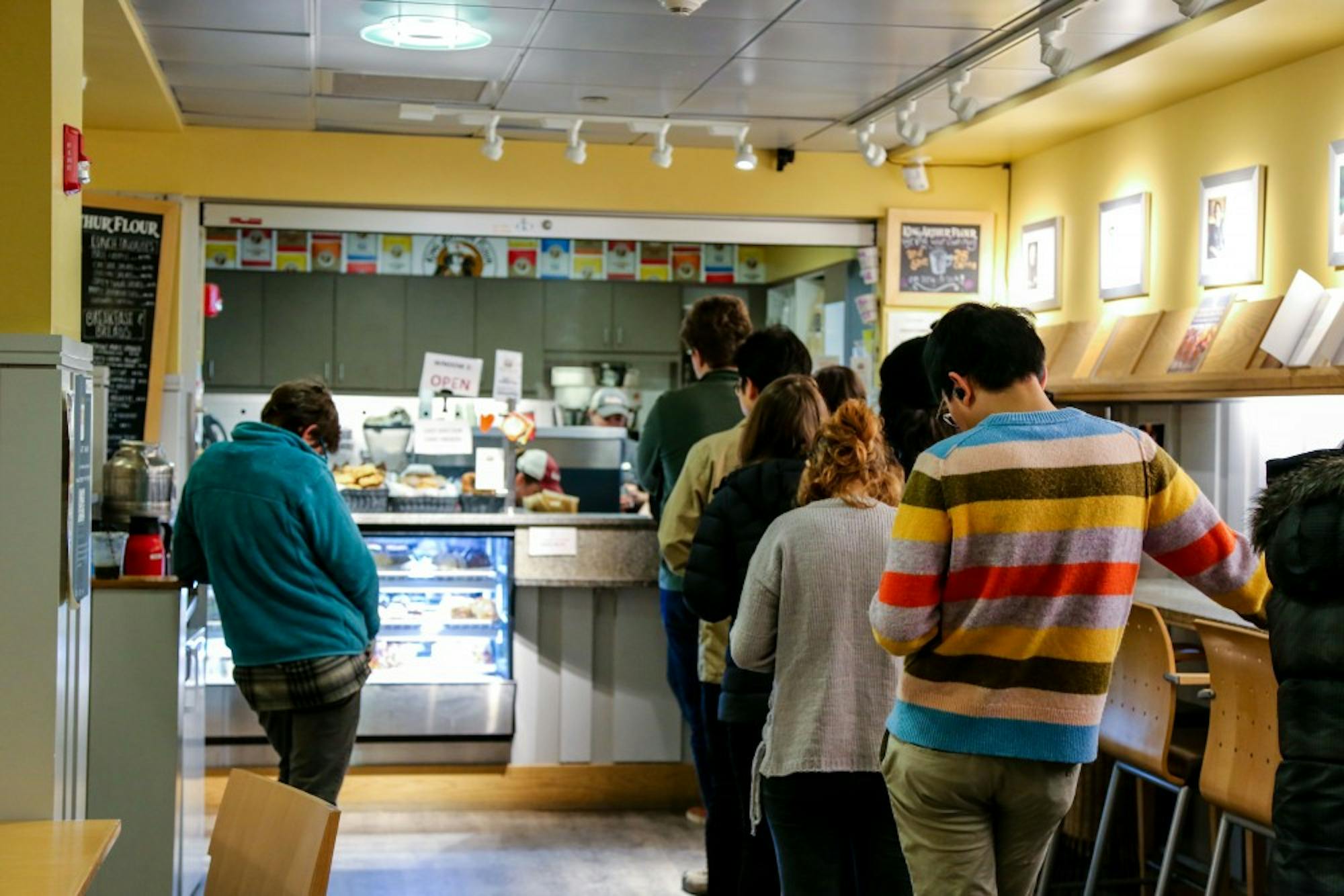Known for its high-volume student traffic, King Arthur Flour Café is one of the most popular eateries on campus. Now there is a new workaround for students dissuaded by the long line.
The Computational Social Affective Neuroscience and Digital Arts Leadership and Innovation labs partnered to create “Line@KAF,” an iOS app and website designed to optimize KAF consumers’ time. Over 600 people have downloaded the app thus far, and roughly 300 visit the website every day.
Frustrated with KAF’s lengthy lines, Jin Hyun Cheong and Eshin Jolly — Ph.D. students in the psychological and brain sciences department — conceived of the idea two years ago, according to Cheong.
Jolly said they developed a simple prototype to estimate the line length at KAF and received funding from the Magnuson Center for Entrepreneurship and the COSAN and DALI labs. Ultimately, winning a prize at the 2018 Dartmouth Hackathon inspired the pair to further develop their prototype.
“We started building different prototypes and continuously developing new methods,” Cheong said. “It took months to find the most accurate [method].”
After winning the Hackathon, Cheong and Jolly initiated contact with DALI, according to software developers Jane Lee ’19 and Teddy Ni ’19. Lee added that she and Ni were immediately interested in helping with the project when Line@KAF was pitched to DALI.
Team members underwent a long process installing the cameras in KAF and collecting data for their neural network — a type of machine learning — and their line-length prediction model.
“Half the time spent developing the app was spent on the installation of the camera,” Ni said. “There’s no formal process for it, so we had to find out [whom] to contact [to] work out logistics.”
The installed cameras, which take pictures every two seconds, link to a Raspberry Pi, according to team member Anders Bando-Hess ’19. A server then deciphers the photos using a complex neural network. Cheong noted that the photos are wiped immediately after the server extracts data from them in order to uphold students’ privacy.
Ni added that after the team set up the cameras, they collected data for a year to reliably predict line lengths. DALI’s line-length prediction algorithm analyzes new data from the KAF cameras every two weeks and adjusts the model to reflect those numbers.
“We’ve stuck with [Line@KAF] ever since it first came to the DALI lab,” Lee said. “We’re here to help people develop their ideas because we have the resources for that.”
Jolly said students working at DALI assisted with the mobile app’s development, design and aesthetics.
“We had a core idea about how we wanted to solve this problem and the skill set we were bringing,” Jolly said. “Ultimately, they played a large role in creating and launching the app.”
The app’s main features include the current line length at KAF’s two windows — including whether Window 2 is open — hour-by-hour line length predictions and a drink and food inventory. Users can report items that are out of stock and issue their feedback through the app.
Lee and Ni both said Line@KAF has received lots of feedback since it was published on Apple’s App Store. Most prominently, students have suggested the app send push notifications when the line length dips below a certain number, according to Lee. She added that people have also expressed a desire for an Android version of the mobile app. In the future, the DALI team hopes to implement the Dartmouth community’s suggestions, Lee said.
Bando-Hess added that the height of KAF’s ceiling limits the camera’s ability to register a line length beyond 15 people. He said he hopes future team members may forge solutions to this issue.
KAF employee Nithya Kasarla ’22 said that while she has not noticed significant changes in activity since Line@KAF’s release, other KAF employees and consumers are thrilled for the future of the app.
“We put a sign up that said we were out of chai [tea] and almond milk and the app’s inventory was updated almost immediately,” Kasarla said. “People seem to really care about the app.”




